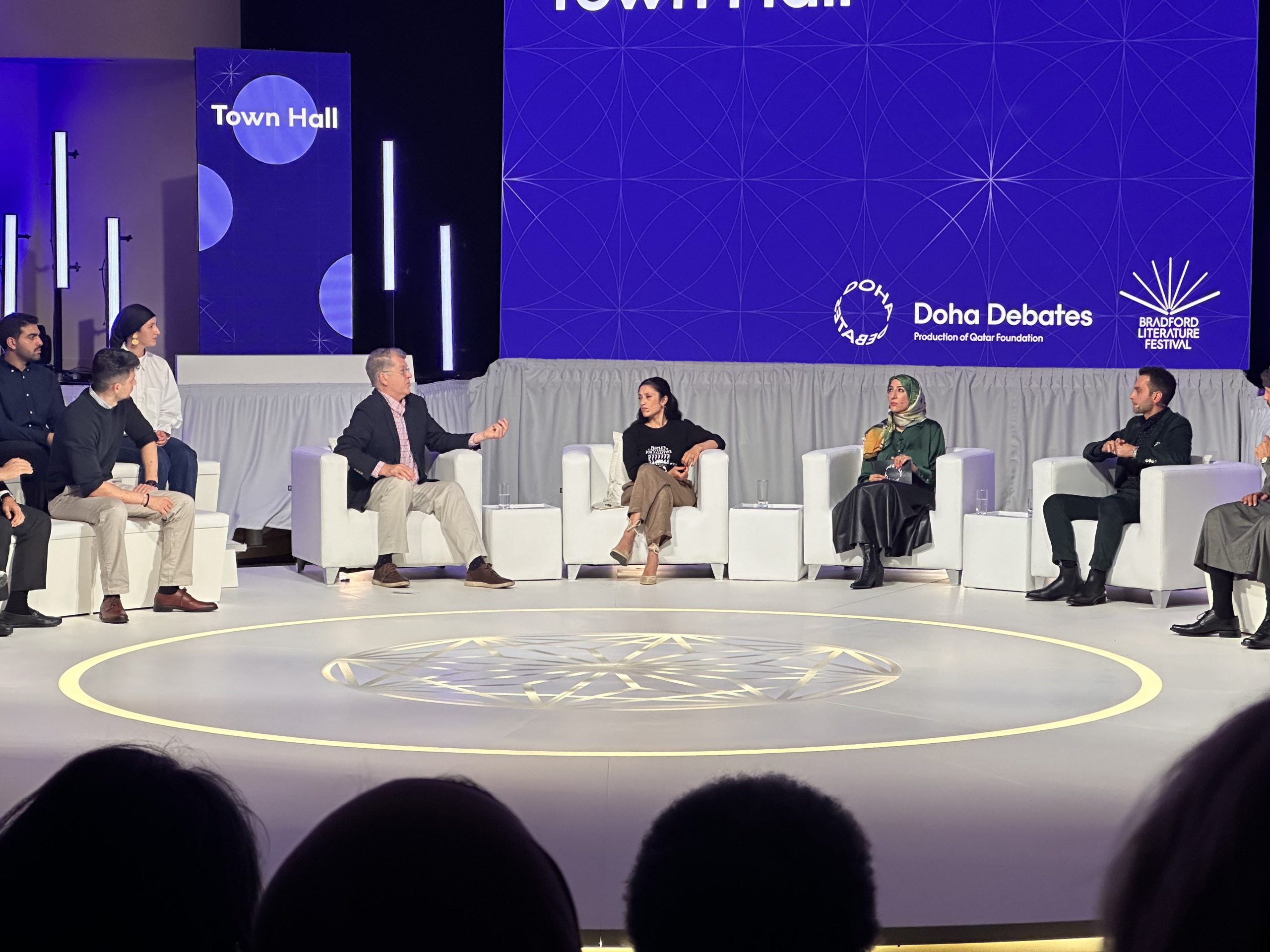The conversation revisited the post-9/11 global war on terror rhetoric that gave rise to rampant media dissent and the advancement of American interests
The Doha Debates platform held its first international Town Hall discussion in the north English city of Bradford in partnership with the Bradford Literature Festival.
With the theme ‘Narrative power: Is the West promoting global justice?’, the dynamic discussion took place at Bradford University and explored the extent to which Western media, politics and public rhetoric shape international narratives about justice.
Remona Aly, journalist and broadcaster, moderated the discussion. Aly was joined by fellow journalist Steve Clemons on the panel, as well as Fatima Bhutto, novelist and author, as well as Konstantin Kisin, podcaster and commentator.
During the discussion, Aly described the topic as “time and crucial”.
The event revisited the case study of the global war on terror promulgated during the premiership of George Bush Junior.
The former U.S. president’s war took place in Iraq and Afghanistan and sparked a war without weapons within the media landscape.
For instance, a leaked internal memo revealed that American media personality Phil Donahue had his primetime show axed by MSNBC in 2003 because his anti-war views made him a “difficult public face for NBC during a time of war.” This trend would later play out digitally twenty years later.
In 2023, Human Rights Watch found Meta’s flawed policy and over-reliance on automation to moderate content as infringing on the rights of social media users to share pro-Palestinian content on Instagram and Facebook.
The voice of the future generation was at the heart of the Bradford event with 20 youth leaders from British and Qatari universities participating in the discussion.
In light of the West silencing dissent and instead promoting prevailing opinions on the world stage, one student asked: “Who are these values for?”
Town Hall history
In line with the 2018 rebuild of the Doha Debates platform by Qatar Foundation, the concept of majlis-style discussions is at the forefront of the Town Hall series. This concept encourages the exploration of salient issues, while also seeking to find common ground.
Prior to the Bradford event, last year, a Town Hall was held at the Qatar National Library in December where panellists discussed: ‘Rise of the Rest: Who should lead in a multipolar world?’
While Jon B. Alterman, vice president of the Center for Strategic and International Studies, highlighted America’s history of “trying to coordinate and inspire” to avoid outbreaks of future world wars, Wadah Khanfar, argued that the Global South should rise to “create the new trend and future” to counteract Western hegemony.
An earlier Town Hall in November 2023 in Doha unpacked the remnants of Orientalism within Western media.
In 2022, the series explored the future of collective Palestinian identity in December and the ethics of engineering a world without disabilities in October.
The inaugural Town Hall kicked off in March 2022 with a conversation with Nobel Peace Prize laureate Malala Yousafzai about the future of women’s and girls’ education in Afghanistan under Taliban rule and in other conflict areas.







